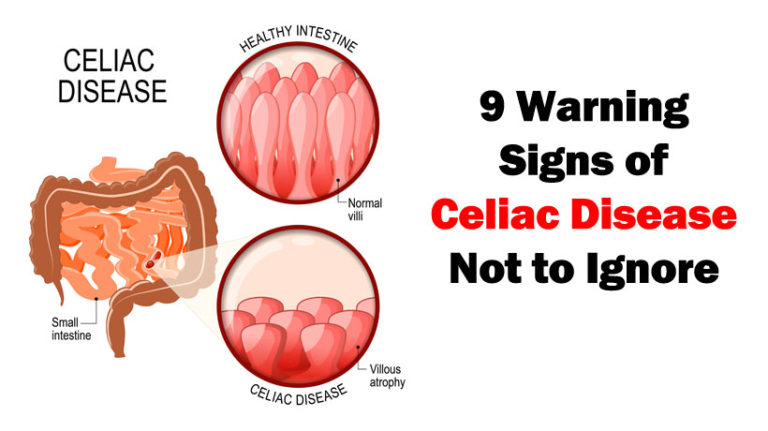
Table of Contents
Introduction
Celiac disease is an autoimmune disorder that affects the small intestine, causing inflammation and damage when gluten is consumed. Gluten is a protein found in wheat, barley, and rye. When someone with celiac disease eats gluten, their body attacks the lining of the small intestine, which can lead to malabsorption of nutrients and a range of health issues. If you’re pregnant and have undiagnosed celiac disease, you may be wondering if your baby can develop properly. In this article, we’ll explore the potential impact of undiagnosed celiac disease on fetal development and discuss what you can do to ensure a healthy pregnancy and baby.
The Importance of a Gluten-Free Diet
If you have celiac disease, it’s essential to follow a gluten-free diet to avoid damage to your small intestine and the potential for nutrient deficiencies. During pregnancy, this becomes even more critical. The nutrients you absorb from your diet are crucial for your baby’s growth and development.Some studies suggest that undiagnosed celiac disease during pregnancy may increase the risk of complications such as preterm birth, low birth weight, and a higher likelihood of delivering via C-section. Additionally, some research indicates that babies born to mothers with untreated celiac disease may have a higher risk of developing type 1 diabetes and celiac disease themselves.
The Impact of Gluten on Fetal Development
Gluten can cross the placenta, and some studies suggest that gluten consumption during pregnancy may affect fetal development. One study found that women with celiac disease who continued to consume gluten during pregnancy had a higher risk of delivering babies with low birth weights and smaller head circumferences than women who followed a gluten-free diet.Another study indicated that women with celiac disease who continued to consume gluten during pregnancy had a higher risk of delivering babies with intrauterine growth restriction (IUGR). IUGR is a condition where the fetus doesn’t grow at the expected rate, which can lead to complications during and after birth.
Diagnosing Celiac Disease During Pregnancy
If you have celiac disease and become pregnant, it’s essential to continue following a gluten-free diet. Additionally, if you haven’t been diagnosed with celiac disease, but you’re experiencing symptoms such as abdominal pain, diarrhea, and weight loss, talk to your healthcare provider. Your doctor may recommend testing for celiac disease.The most common test for celiac disease is a blood test that measures the levels of certain antibodies. If the blood test is positive, your doctor may recommend a small bowel biopsy to confirm the diagnosis.
Conclusion
In conclusion, if you have celiac disease and become pregnant, it’s essential to follow a strict gluten-free diet to ensure a healthy pregnancy and baby. Undiagnosed celiac disease during pregnancy may increase the risk of complications such as preterm birth, low birth weight, and a higher likelihood of delivering via C-section. Additionally, gluten consumption during pregnancy may affect fetal development, leading to conditions such as IUGR.If you’re experiencing symptoms of celiac disease during pregnancy, talk to your healthcare provider. They can help you get the testing and treatment you need to ensure a healthy pregnancy and baby.
Frequently Asked Questions
Q: What should I eat if I have celiac disease during pregnancy?
A: If you have celiac disease, it’s essential to follow a strict gluten-free diet during pregnancy. This means avoiding all foods that contain wheat, barley, rye, and other gluten-containing grains. You should focus on eating a balanced diet that includes plenty of fruits, vegetables, lean proteins, and gluten-free grains such as rice, quinoa, and corn.
Q: Can celiac disease affect my ability to conceive?
A: Celiac disease may affect fertility in some women, especially if the disease is undiagnosed and untreated. However, following a gluten-free diet may improve fertility in women with celiac disease.
Q: Can my baby inherit celiac disease?
A: There is a genetic component to celiac disease, which means that babies born to parents with celiac disease may be at a higher risk of developing the condition themselves. However, not all babies born to parents with celiac disease will develop the condition.
Q: Can I breastfeed if I have celiac disease?
A: Yes, you can breastfeed if you have celiac disease. However, you should continue to follow a strict gluten-free diet to avoid passing gluten on to your baby through breast milk.
Q: Can celiac disease cause miscarriage?
A: There is no evidence to suggest that celiac disease causes miscarriage. However, undiagnosed and untreated celiac disease may increase the risk of complications during pregnancy, such as preterm birth and low birth weight.
